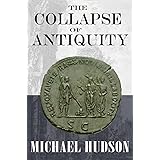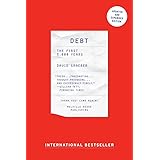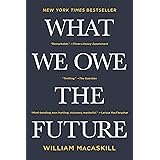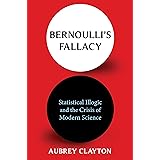




Download the free Kindle app and start reading Kindle books instantly on your smartphone, tablet, or computer - no Kindle device required.
Read instantly on your browser with Kindle for Web.
Using your mobile phone camera - scan the code below and download the Kindle app.

Follow the author
OK
...and forgive them their debts: Lending, Foreclosure and Redemption From Bronze Age Finance to the Jubilee Year (Tyranny of Debt) Paperback – October 30, 2018
Selected "Best Books of 2018: Economics" by The Financial Times
In ...and forgive them their debts, renowned economist Michael Hudson - one of the few who could see the 2008 financial crisis coming - takes us on an epic journey through the economies of ancient civilizations and reveals their relevance for us today. For the past 40 years, in conjunction with Harvard's Peabody Museum, he and his colleagues have documented how interest-bearing debt was invented in Bronze Age Mesopotamia, and then disseminated to the ancient world. What the Bronze Age rulers understood was that avoiding economic instability required regular royal debt cancellations. Professor Hudson documents dozens of these these royal edicts and traces the archeological record and history of debt, and how societies have dealt with (or failed to deal with) the proliferation of debts that cannot be paid - and their consequences. In the pages of ...and forgive them their debts, readers will discover how debt played a central role in shaping ancient societies, and how it continues to shape our world - often destructively.
The Big Question: What happens when debts cannot be paid? Will there be a writedown in favor of debtors (as is routinely done for large corporations), or will creditors be allowed to foreclose (as is done to personal debtors and mortgagees), leading to the creditors' political takeover of the economy's assets - and ultimately the government itself? Historically, the remedy of record was the royal Clean Slate proclamation, or biblical Jubilee Year of debt forgiveness.
The Real Message of Jesus: Jesus's first sermon announced that he had come to proclaim a Clean Slate debt cancellation (the Jubilee Year), as was first described in the Bible (Leviticus 25), and had been used in Babylonia since Hammurabi's dynasty. This message - more than any other religious claim - is what threatened his enemies, and is why he was put to death. This interpretation has been all but expunged from our contemporary understanding of the phrase, "...and forgive them their debts," in The Lord's Prayer. It has been changed to "...and forgive them their trespasses (or sins)," depending on the particular Christian tradition that influenced the translation from the Greek opheilēma/opheiletēs (debts/debtors).
Contrary to the message of Jesus, also found in the Old Testament of the Bible and in other ancient texts, debt repayment has become sanctified and mystified as a way of moralizing claims on borrowers, allowing creditor elites and oligarchs the leverage to take over societies and privatize personal and public assets - especially in hard times. Historically, no monarchy or government has survived takeover by creditor elites and oligarchs (viz: Rome). Perhaps most striking is that - according to a nearly complete consensus of Assyriologists and biblical scholars - the Bible is preoccupied with debt forgiveness more than with sin.
In a time of increasing economic and political polarization, and a global economy deeper in debt than at the height of the 2008 financial crisis, ...and forgive them their debts documents what individuals, governments and societies can learn from the ancient past for restoring economic and social stability today.
-
Print length340 pages
-
LanguageEnglish
-
PublisherIslet
-
Publication dateOctober 30, 2018
-
Dimensions6.6 x 0.7 x 9.5 inches
-
ISBN-103981826027
-
ISBN-13978-3981826029
The Amazon Book Review
Book recommendations, author interviews, editors' picks, and more. Read it now.
Similar items that may ship from close to you
Editorial Reviews
Review
The American economist Michael Hudson has written a fascinating book, . . . and forgive them their debts: Lending, Foreclosure and Redemption From Bronze Age Finance to the Jubilee Year on the historical antecedents of the Mosaic debt jubilee. The work of Assyriologists has shown that by the third millennium BC, the rulers of the ancient Near East understood the necessity of repeated debt forgiveness. The alternative was, he writes, "economic polarisation, bondage and collapse". The relevance of this history to the world of today seems clear: debt is necessary; too much debt is disastrous.
- Martin Wolf, Chief Economics Commentator, Financial Times
Michael Hudson is surely the most innovative, and in my view, the most important economic historian of the last half century. This is the consummate product of more than 30 years of research on the history of a subject that could not be more important to our own situation today. We like to use the term "ancient history" as a code-word for "of no possible relevance to matters of consequence today." This book clearly demonstrates that nothing could be further from the truth. If we don't take heed, ancient history is likely to engulf us in ways that will shatter our complacency in the most disastrous of ways. Hudson is giving us a desperately needed warning, and we would do well to pay very close attention.
- David Graeber, Professor of Anthropology at the London School of Economics, author of the international bestseller, Debt: The First 5,000 Years
Michael Hudson's excavation of the ancient historical roots of the Jubilee, Sabbath or sabbatical principle, common to all the Abrahamic faiths, makes this book an essential read for those who want to deepen their understanding of the world's great religions. As someone in the leadership of the international Jubilee 2000 campaign, I have always believed that the Judaic and Christian principle of Jubilee - the periodic correction of economic imbalances - was a principle of social justice deeply embedded in the human psyche. Prof. Hudson's account of the evolution of creditor-debtor relationships, as well as of the development of the rate of interest in ancient Assyria makes this book of particular relevance to historians of western economic thought and practice. But above all, his book reminds us that human history is littered with bitter struggles between debtors and their creditors, between the landed and the landless, and between workers and rentiers. And that the struggle continues.
- Ann Pettifor, Political Economist, Director of PRIME, Economic Adviser to Jeremy Corbyn and the British Labour Party
Michael Hudson reveals the real meaning of "forgive us our sins." It has far more to do with throwing the moneylenders out of the Temple than today's moneylenders would like you to know.
- Steve Keen, Economist, recipient of the Revere Award for Economics for his blog, Debtwatch at debtdeflation.com/blogs/
Michael Hudson is the best economist in the world... Readers often ask me how they can learn economics. My answer is to spend many hours with Hudson's books. You will understand economics better than any Nobel Prize-winning economist.
- Paul Craig Roberts, former Under-Secretary of the U.S. Treasury (Reagan Administration) and author of The Failure of Laissez Faire Capitalism and Economic Dissolution of the West
About the Author
Product details
- Publisher : Islet (October 30, 2018)
- Language : English
- Paperback : 340 pages
- ISBN-10 : 3981826027
- ISBN-13 : 978-3981826029
- Item Weight : 1.25 pounds
- Dimensions : 6.6 x 0.7 x 9.5 inches
- Best Sellers Rank: #867,493 in Books (See Top 100 in Books)
- #1,757 in Economic History (Books)
- #3,818 in History of Christianity (Books)
- #4,771 in Christian Church History (Books)
- Customer Reviews:
About the author

Discover more of the author’s books, see similar authors, read author blogs and more
Customer reviews
Customer Reviews, including Product Star Ratings help customers to learn more about the product and decide whether it is the right product for them.
To calculate the overall star rating and percentage breakdown by star, we don’t use a simple average. Instead, our system considers things like how recent a review is and if the reviewer bought the item on Amazon. It also analyzed reviews to verify trustworthiness.
Learn more how customers reviews work on AmazonReviews with images
-
Top reviews
Top reviews from the United States
There was a problem filtering reviews right now. Please try again later.
The less good: Michael Hudson is not a literary stylist and his prose requires close attention to work through. A co-writer or very good editor to sharpen up the text would definitely help. This isn't a book you can plow through like a beach novel, let's just say that.
We can start by eliminating student and personal debt. Then, we can selectively cover all necessary debt forgiveness, including, especially Third World and emerging countries' debts.
And the reason I have to highlight so much is that I mentally lose my place otherwise; I also have to make marks and notes with a red gel pen as well, and so book pages must be able to handle these things, and all my books usually can handle all this, but not this one, so much.
The thesis' centre is the exponential function. This was taught to children in the ancient Near East as it is taught to children today: to impress upon the next generation what "compound interest" means. What it means for the working class, historically, has been destitution. As Hudson notes, at a certain point debts can't be paid. So they shan't be paid. HOW they shan't be paid is then the question: often, it's bloody revolution.
Near Eastern societies, mostly Semitic because that's what we have a record for, solved this by sporadic misharum edicts: the palace collected grain debts, and forgave them. Silver debts, swapped between merchants, the palace would leave alone. The aim was to keep able-bodied men on the farm so they could be called upon to fight in wars. Wars cannot be fought well with a sickly indigent urban underclass, especially if that underclass resents the palace.
The bulk of this book is that history, part III over chs. 8-21. Part IV is an interpretation of the Bible, chs. 22-26; followed by a two-chapter afterclap, in a history of the Byzantine state under the "Macedonian" dynasty and its struggles with the dynatoi. Preceding it all over parts I-II is a summary of the argument, most of which I had to admit confused me, such that I will have to retry it. The concluding chapter 29 by contrast was succinct and convincing.
The book has its heroes and villains. Basil I, Romanos I, and Basil II are heroes; Leo VI and empress Zoe, villains. Everyone is judged by how they handle debt, against how Hammurabi and Hudson would handle it. The Saite kings p. 180 would be heroes too except that the Kushites knocked them out too soon. The author is further not above settling professional scores with other economic historians, pp. 266-9. Although if he's accurately quoting those scholars, those scholars deserve it.
Organisationally, I would fault this book by not marking its "part one", "part two" etc where they occur in the text. I just see these sections in the contents. As the facts go, I found little wrong with them. I noted a few solecisms like calling "Theophanes Continuatus" a "chronicler" as if this wasn't, in fact, the name of the chronicle - the continuation of Theophanes'. Also, the textual analysis of the Bible isn't up to date; the references are solidly 1960s-80s. If one is to discuss the Holiness Code p. 211, one should now refer to Israel Knohl's "Sanctuary of Silence" (1996). And I wonder if by the [hypothetic] "P" document p. 194 the author means "D" or even "E".
As to the index, the holiness code isn't in it. So it's incomplete.
The sheer volume of data brought here is impressive. For that alone I deem this book essential to anyone who would venture an economic history of the Ancient Near East or of peak Byzantium. It should further be the model for anyone writing economic histories afield or, for that matter, policy-papers in the present.










